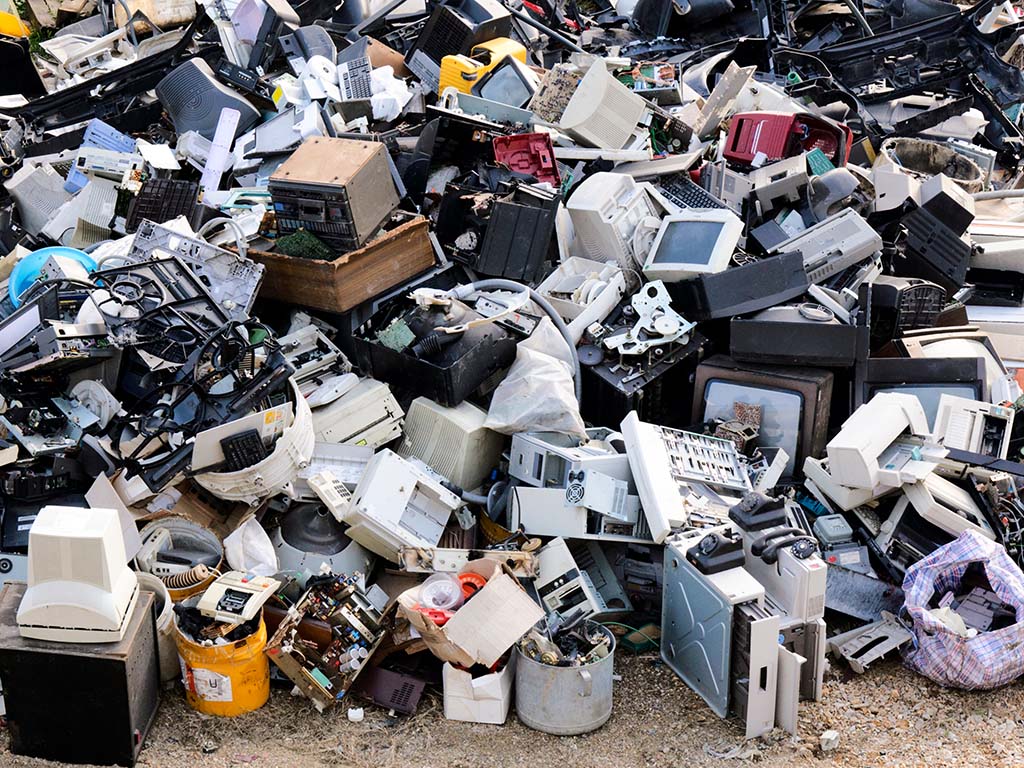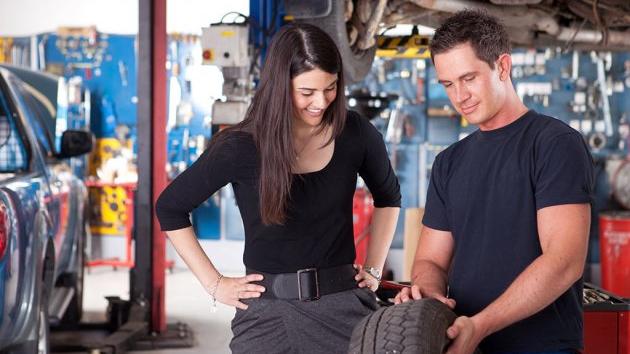What to do with old devices in Serbia and is there a way to transform waste into ecological and economic value?
Source: eKapija
 Wednesday, 09.04.2025.
Wednesday, 09.04.2025.
 18:51
18:51
 Wednesday, 09.04.2025.
Wednesday, 09.04.2025.
 18:51
18:51
Illustration (Photo: Photo by Berre Aç?kdeniz)

According to the data of the Serbian Environmental Protection Agency, the reuse of electrical and electronic waste recorded growth - from 7,084 tons in 2011, it has reached 35,373 tons in 2023. In 2023, more than 50% of treated quantities of electronic waste in Serbia originated from large household appliances.
According to the preliminary data of the Association of Recyclers of Serbia, in 2023, more than 37,000 tons of electrical and electronic waste was disposed of, which continues the growing trend from 2021,
since then the treated quantities have increased by 20%.
- Let`s be as picturesque as always, it is a 100 kilometer long convoy of 9,000 trucks which are taken care of by 5,000 workers employed by operators and collectors. It is estimated that the average Serbian citizen generates more than 7 kg of electrical and electronic waste annually. Although the figure is presented per capita, it is actually about industry, all legal entities and households. As an EU member, we would be at the top, not only in terms of quantities, but above all in terms of the technological level at which our operators are located - says Marko Vučenović, general secretary of the Association of Recyclers of Serbia, for eKapija.
The successful experiences of other countries can be used, he adds, first of all so that we do not repeat the same mistakes.
- There is no perfect system in this area, primarily because even the most advanced systems, due to hyperproduction, are under tremendous pressure. In this sense, the experiences of other countries are important in terms of efforts to maximize device reuse, i.e. prevention of waste generation, as well as rational and economical channels for the collection of electric and electronic waste, primarily through trade chains - says our interlocutor.
How to make it better?
Vučenović points out that the main problem with electronic waste recycling in our country is the result of hyperproduction and irresponsibility of producers.
- The situation is not great anywhere in the world, because not enough is being done on prevention, on the contrary, the amount of waste is increasing, and product design is an additional problem. Material types and their combinations which are used during the manufacture of a certain device
dominantly determine its quality, i.e. lifespan, but also limit the possibilities of treatment, both factually and financially. Therefore, the first condition is that there is technology for treatment at all,
the second is that the obtained recyclate has a use value, including market competitiveness. In conditions of hyperproduction, it is difficult to implement the principles of the circular economy - he points out.
Another challenge, as Vučenović adds, is also the collection of electronic waste. Companies are fully disciplined in this regard, partly due to the legal obligation to hand over electronic waste to the operator, because electronic waste is not municipal waste, but hazardous waste. The problem with collection is expressed in the case of EE waste generated by households.
- Citizens are our greatest allies in this fight. Every day, the Association of Recyclers receives a large number of inquiries about the way in which this type of waste can be handed in. The biggest challenges concern the lack of more channels for collecting this type of waste, which limits the volume of collection and increases the cost of the entire disposal process - our interlocutor states.
According to him, an urgent change in regulation is needed to enable citizens to hand in their old device where they buy a new one, which would facilitate the whole process.
- This does not require the engagement of state resources, and it can give a result in a shorter period of time. In many European countries traders are mandatory to take over the old device on a "1 for 1" basis – when you buy a new one, the dealer must take over the old device. Clear conditions are prescribed in those systems and traders are exempted from the obligation to keep the prescribed records and obtaining permits for waste storage - says Vučenović.
People rarely think about how dangerous electronic waste is to the environment and health
The goal of recycling is to obtain recyclates with a high degree of purity, which can then be used as raw material, explains the general secretary of the Association of Recyclers of Serbia. Depending on the waste type, in the recycling process different materials are obtained, such as plastic, aluminum, copper, iron, glass, textiles, various insulating and other materials, which are then used in the production of new products.
- Electric and electronic devices are very complex, people often don`t even think about how risky the devices that surround us can be for the environment, they contain a large number of chemical substances and compounds, many of them are harmful to the environment and human health. The problem arises when these devices are disposed of uncontrollably or unprofessionally disassembled, with the aim of extracting valuable materials while dumping hazardous materials in an uncontrolled manner, contaminating disassembly sites and landfills. Special waste streams are regulated separately, they are not municipal waste and cannot be disposed of in landfills, but exclusively treated in accordance with the law, so that mercury, lead, cadmium, barium and other elements would not end up in the ground, water or air - he points out.
He explains that, for example, in the treatment of waste refrigerators, it is necessary to separate freon, which requires modern equipment, which enables a safe conversion from a gaseous to a liquid state, then it is stored in special vessels, which ensure safe transport to the plant where the treatment is carried out.
Illustration (Photo: Family Business/shutterstock.com)

Domestic operators in the European top in terms of technological level, regulation needs to be changed
Regarding the legislative framework, Vučenović notes that the current Law on Waste Management, as well as by-laws adopted in 2009, are not fully aligned with EU legislation.
- We need the attention of the state, above all in the diligent payment of compensations for the treatment of hazardous waste and support in fine-tuning regulations due to changes in technological processes. The Law on Waste Management and the by-law relating to electronic and electrical waste were adopted in 2009. However, these regulations did not fully transpose EU directives which regulate the waste management of electrical and electronic equipment in the Serbian legislation - he says.
In the meantime, he adds, the legal framework at the EU level has been further improved, both through general acts and accompanying standards for the collection and treatment of EE waste.
- In this sense, we advocate for the urgent adoption of a new legal framework, in order to ensure that all actors on our market operate in accordance with the highest European standards - he points out.
Vučenović also states that recycling in Serbia already has certain capacities, but that there are significant problems, especially when it comes to electronic waste collection. He notes that although companies are required to hand over electronic waste to operators, there are still shortcomings in the infrastructure for collecting this type of waste, which complicates the recycling process.
- When it comes to treatment, Serbia has operators who are among the top in Europe in terms of technological level and have the capacity to process larger amounts of waste from electrical and electronic equipment than what is currently collected. When talking about the lack of infrastructure,
we mean first of all the shortcomings in the collection infrastructure. The state adopted the Waste Management Program until 2031, containing very ambitious plans in this area, the majority of which concern local self-government units and we all expect to see results in this regard - our interlocutor concludes.
Ivana Žikić

Click here to see the entire Special Edition Newsletter
"ECONOMICALLY ECOLOGICAL - Green is the new black"
read more
Tags:
Association of Recyclers of Serbia
Environmental Protection Agency
Marko Vučenović
electronic waste
electronic waste recycling
special edition newsletter
economically ecological
green is the new black
TB green is the new black
Comments
Your comment
Most Important News
Full information is available only to commercial users-subscribers and it is necessary to log in.
Follow the news, tenders, grants, legal regulations and reports on our portal.
Registracija na eKapiji vam omogućava pristup potpunim informacijama i dnevnom biltenu
Naš dnevni ekonomski bilten će stizati na vašu mejl adresu krajem svakog radnog dana. Bilteni su personalizovani prema interesovanjima svakog korisnika zasebno,
uz konsultacije sa našim ekspertima.


 Izdanje Srbija
Izdanje Srbija Serbische Ausgabe
Serbische Ausgabe Izdanje BiH
Izdanje BiH Izdanje Crna Gora
Izdanje Crna Gora


 News
News














